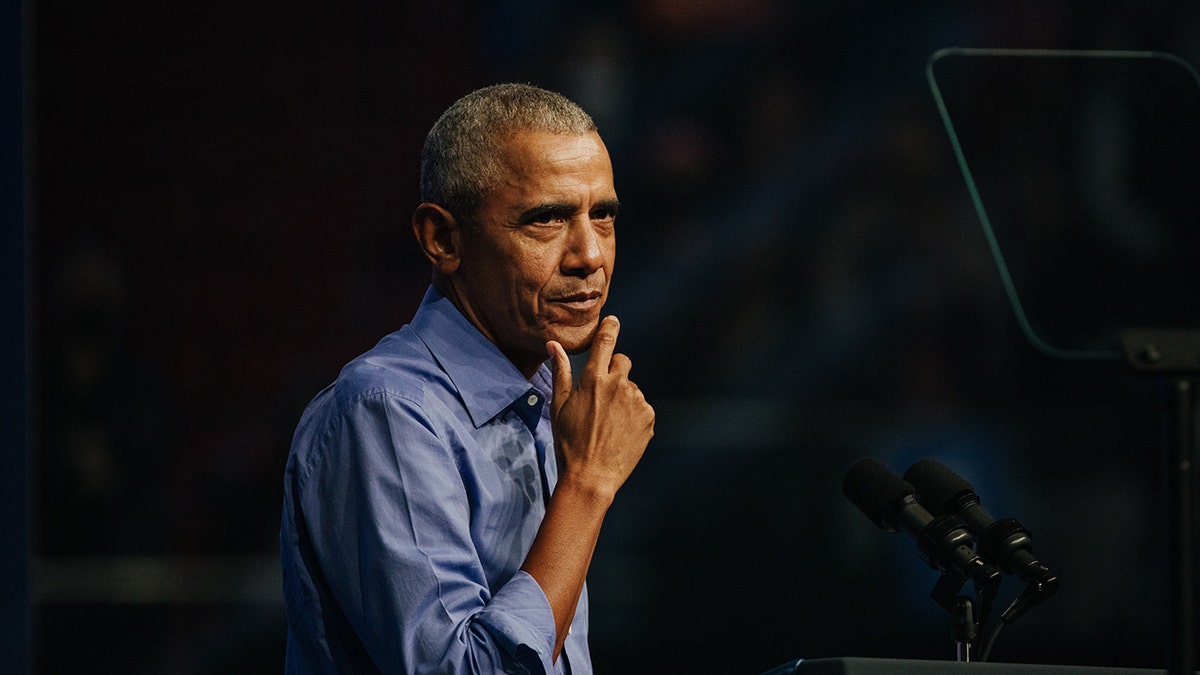Documentary 'No Safe Spaces' investigates erosion of free speech across America
Radio talk show host Dennis Prager speaks out about the importance of free speech amid increased attacks on conservatives.
Oxford University Chancellor Lord Patten swiped at "safe spaces" on college campuses as "mad" and "oxymoronic" in an interview with Oxford's student newspaper.
"There’s been a lot of talk recently about wokeism on campus," The Oxford Student recently asked Patten. "Do you think free speech is at risk?"
"Look, I’m an old-fashioned liberal and I believe that free speech and tolerance are one of the most important values in an open society," he replied. "If universities aren’t bastions of free speech, who’s going to be? And it means that, ‘No platforming’, a pretty graceless phrase, should be anathema. When people talk about safe spaces intellectually at universities, it’s mad. It’s oxymoronic. That’s not what universities are all about."

Clarendon House at Oxford University in Oxford, central England in February. (Reuters)
Patten, who served as the final British governor of Hong Kong, described how when he was an undergraduate who was "a Catholic scholarship boy from a moderately right wing, lower middle class family," his moral tutor was a Marxist atheist.
"Did that ruin me?" Patten said. "Did that astonish me? The truth is that I think what you should learn at university, among other things, is that an argument isn’t the same as a quarrel. And that an argument and people who have a different point of view to you are not challenging your identity. They may have views about your identity. And I hope what we do at a good university is to give people the intellectual confidence and ability to argue tolerantly with people who don’t agree with them."
COLUMBIA UNIVERSITY RANKS DEAD LAST IN NATION FOR COLLEGE FREE SPEECH: STUDY
Lord Patten did not deny that hate speech exists, but argued there is a better way to deal with it.
"There is hate speech, but you define hate speech under the law, [such as] attacking gender or people’s sexual preferences or whatever," he said. "But [ultimately], the answer to bad free speech is good free speech."

City College of New York campus. (City College of New York)
COLLEGE FRESHMAN ORIENTATION MATERIALS EMPHASIZE DEI OVER FREE SPEECH, REPORT REVEALS
The topic of "safe spaces" has been prevalent in U.S. universities, with students often protesting when conservative speakers are invited to campus. In some cases, the protests have been so disruptive that speakers have canceled their visits, such as when former Secretary of State Condoleezza Rice decided to bow out of her commencement speech at Rutgers University in 2014. Several faculty members and students wanted the invitation rescinded because of Rice's role in the Iraq War. Rutgers' New Brunswick Faculty Council passed a resolution calling on the university's board of governors to rescind its invitation.
After Rice's withdrawal, a group of students wrote a frustrated letter to university president Dr. Robert Barchi expressing their concerns that Rutgers was not a place where "the free ideas and a diversity of opinions are encouraged."

Former US President Barack Obama speaks during a Democratic National Committee (DNC) rally in Philadelphia, Pennsylvania, US, on Saturday, Nov. 5, 2022. (Michelle Gustafson/Bloomberg via Getty Images)
Both Republicans and Democrats have defended free speech on college campuses. President Obama, for instance, famously sounded off on the coddling of college students at a town hall in 2015.
"I’ve heard of some college campuses where they don’t want to have a guest speaker who is too conservative or they don’t want to read a book if it has language that is offensive to African Americans or somehow sends a demeaning signal toward women," President Obama said at an education town hall in Des Moines. "I’ve got to tell you, I don’t agree with that, either. I don’t agree that you, when you become students at colleges, have to be coddled and protected from different points of view."
"Anybody who comes to speak to you and you disagree with, you should have an argument with them," he added. "But you shouldn’t silence them by saying, ‘You can’t come because, you know, I’m too sensitive to hear what you have to say.’ That’s not the way we learn either."











































